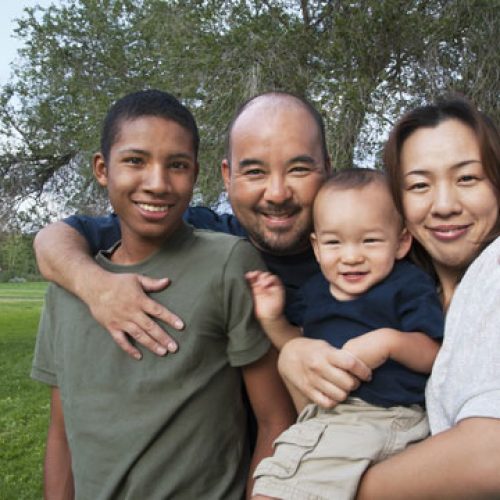We ensure children across Massachusetts have safe, loving foster homes.
Every child should have a fair shot at success. At HopeWell, we seek to deliver on this promise for one of our nation’s most marginalized group of young people — children and teenagers experiencing foster care.
We are the largest nonprofit provider of comprehensive foster care in Massachusetts. We recruit, train, and support loving foster homes. And we ensure that the children and teens in our care receive the resources, supports and opportunities that they deserve.

"Family is a loveline, not a bloodline."
Ty Montgomery
“I love providing them with lots of happy memories that all children should be able to have.”
Kathy
How it Works
When children enter foster care due to reasons such as abuse, neglect, or parent illness, incarceration, or death, the state Department of Children and Families (DCF) calls on providers to help find and support loving foster homes. HopeWell is the largest nonprofit provider of comprehensive foster care in Massachusetts.
This year, we supported hundreds of children and teens in HopeWell foster homes across Massachusetts.
Threaded throughout all of our foster care work is a focus on permanency. We work to secure a path to a permanent home for the children and teens in our care — whether it’s through reunification with their birth family, a kinship placement, adoption, or legal guardianship. We also support families in crisis through our Family Together program, so that fewer families are separated in the first place.
- We guide people who are interested in becoming foster parents through the process. We ensure people meet standard requirements (such as a safe home environment) and we get to know each person individually along the way!
- We train foster parents through the Massachusetts Approach to Partnership in Parenting (MAPP) program.
- We help children and families navigate the placement process to ensure a good fit.
- We provide ongoing support to children and foster parents, including professional support from our staff, emergency support, financial support, and programming and events for the whole family.
Being in Foster Care
Venessa's Story

Make a Difference
Foster Parents Needed!
HopeWell’s foster parents help change the world, one child at a time. With 60 years of experience guiding us, we are happy to answer your questions, explain the process, and provide specifics about the supports we provide our amazing community of foster parents.